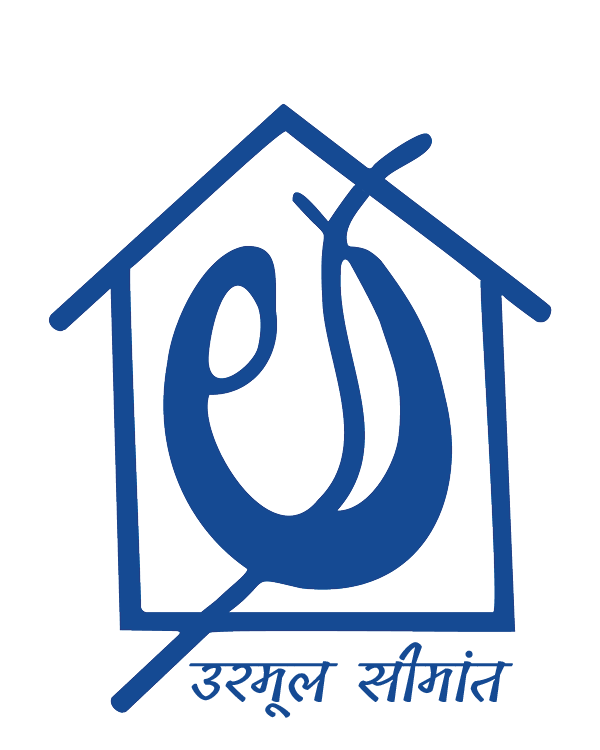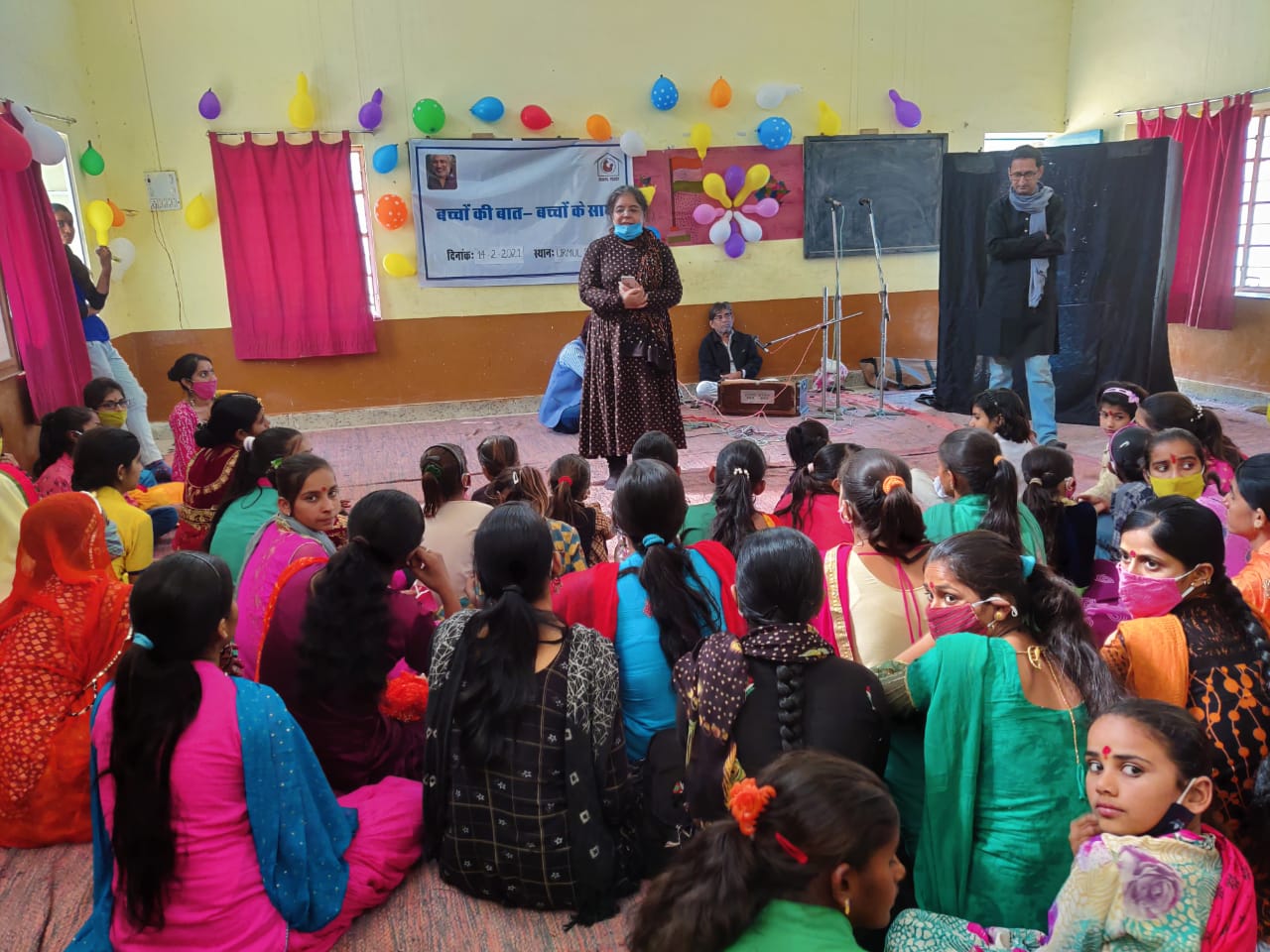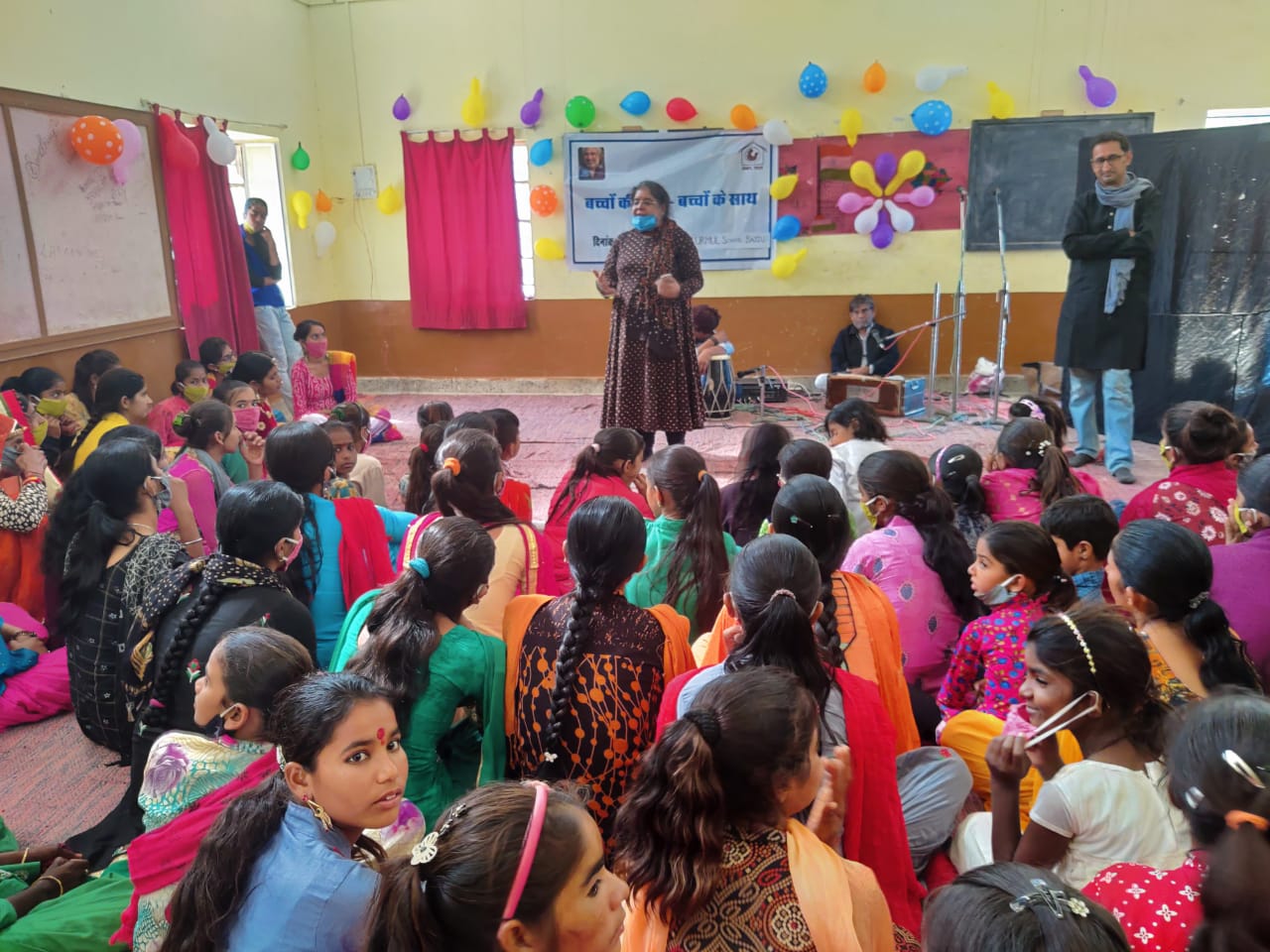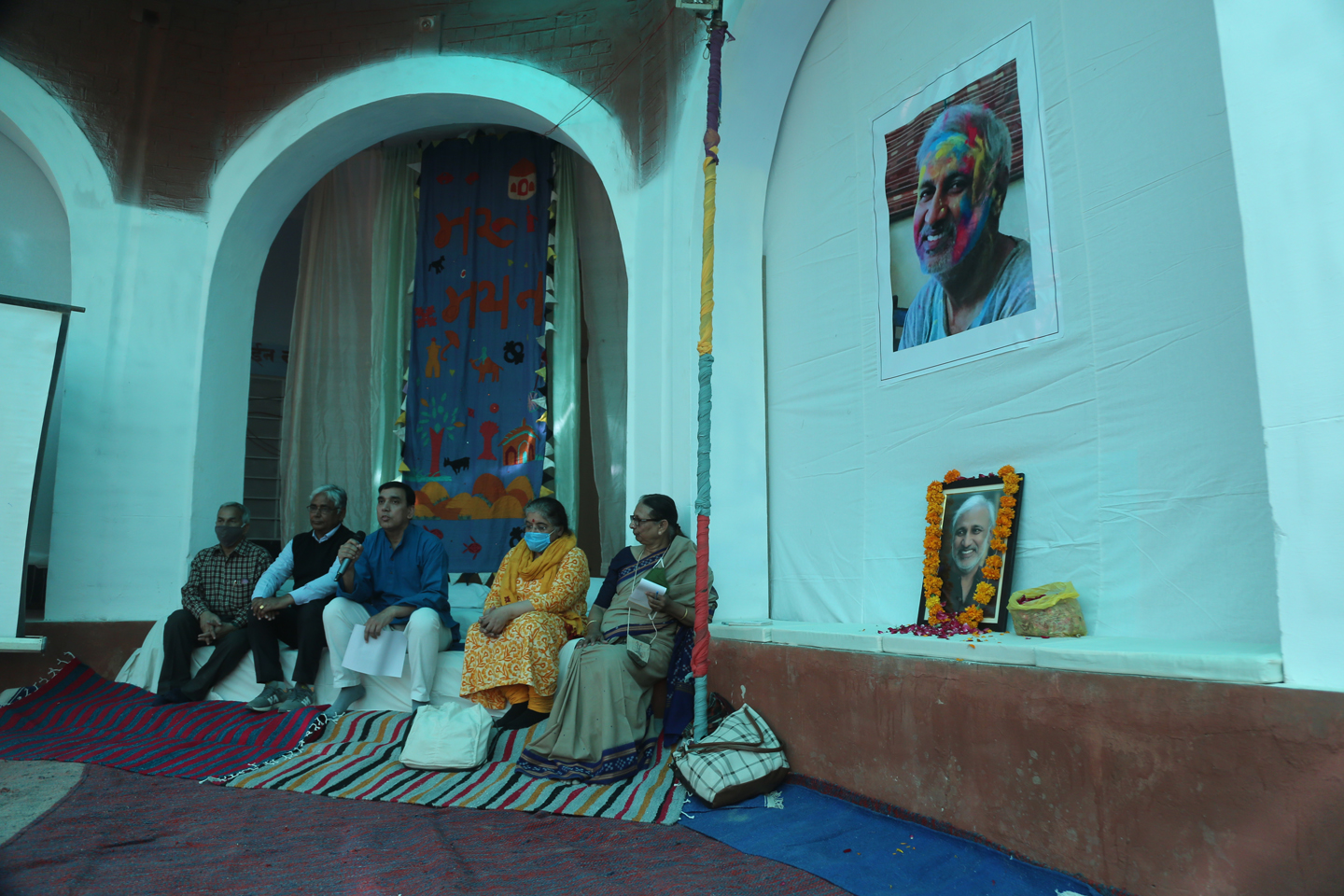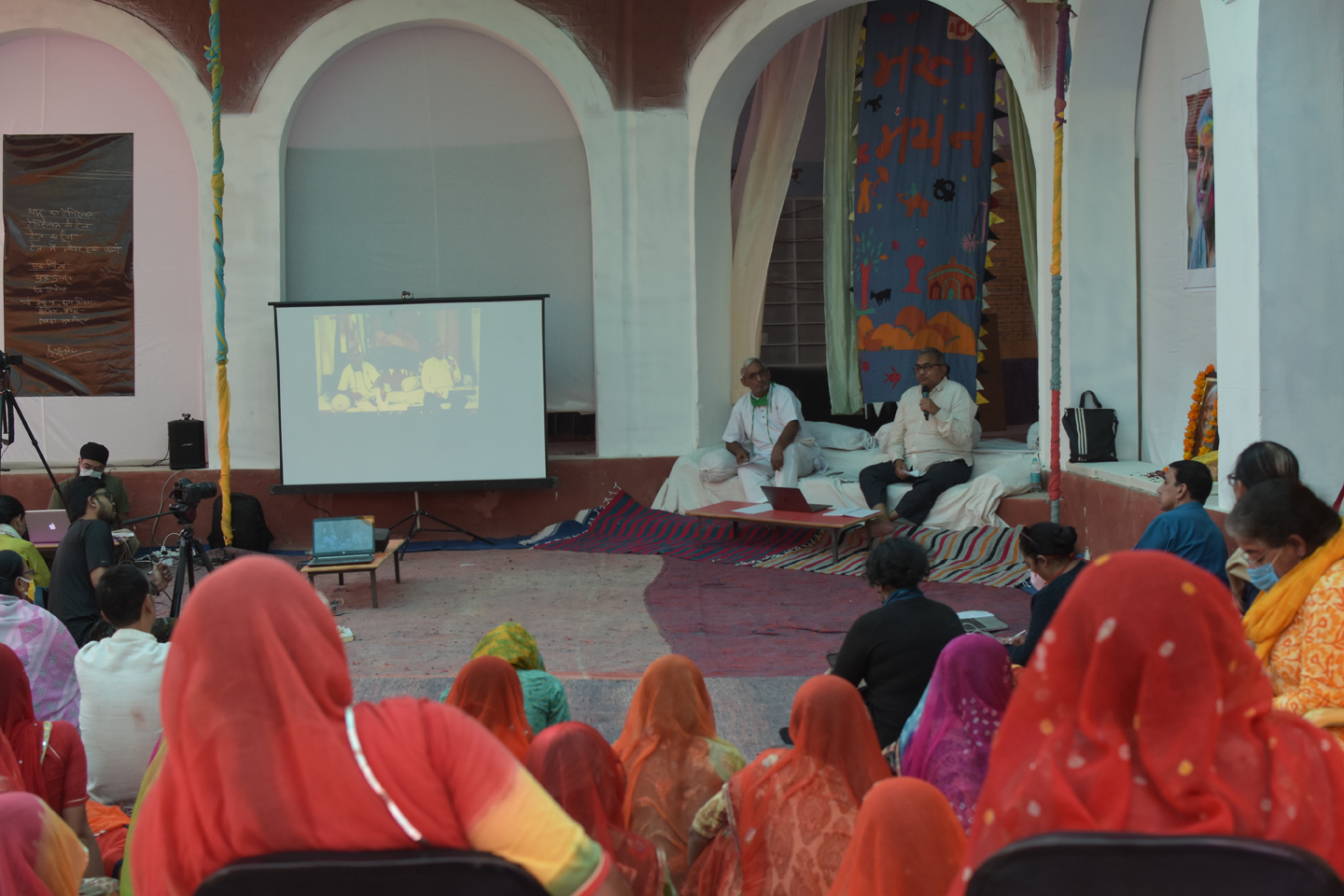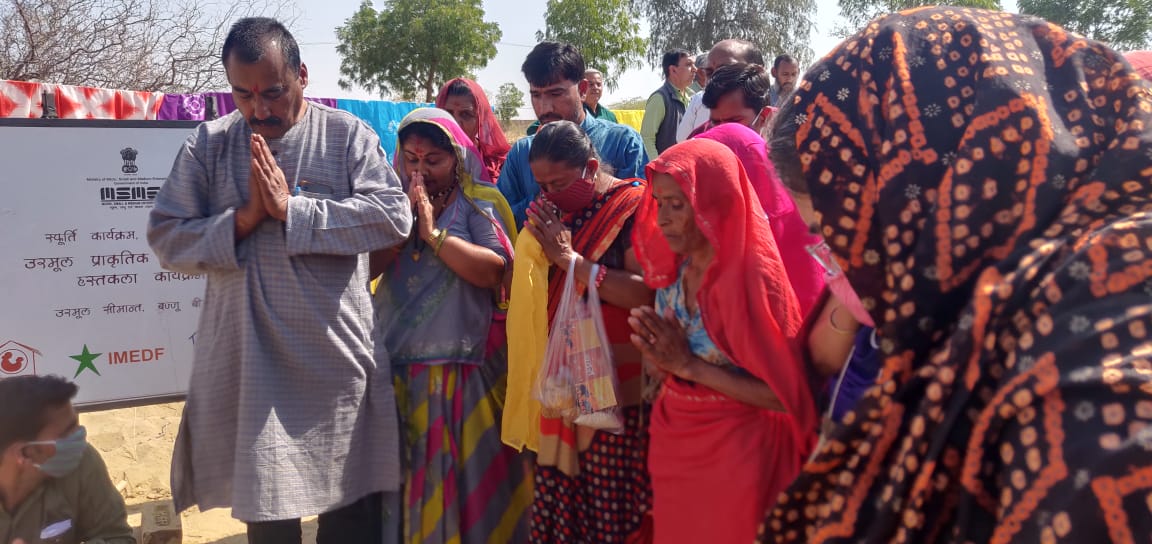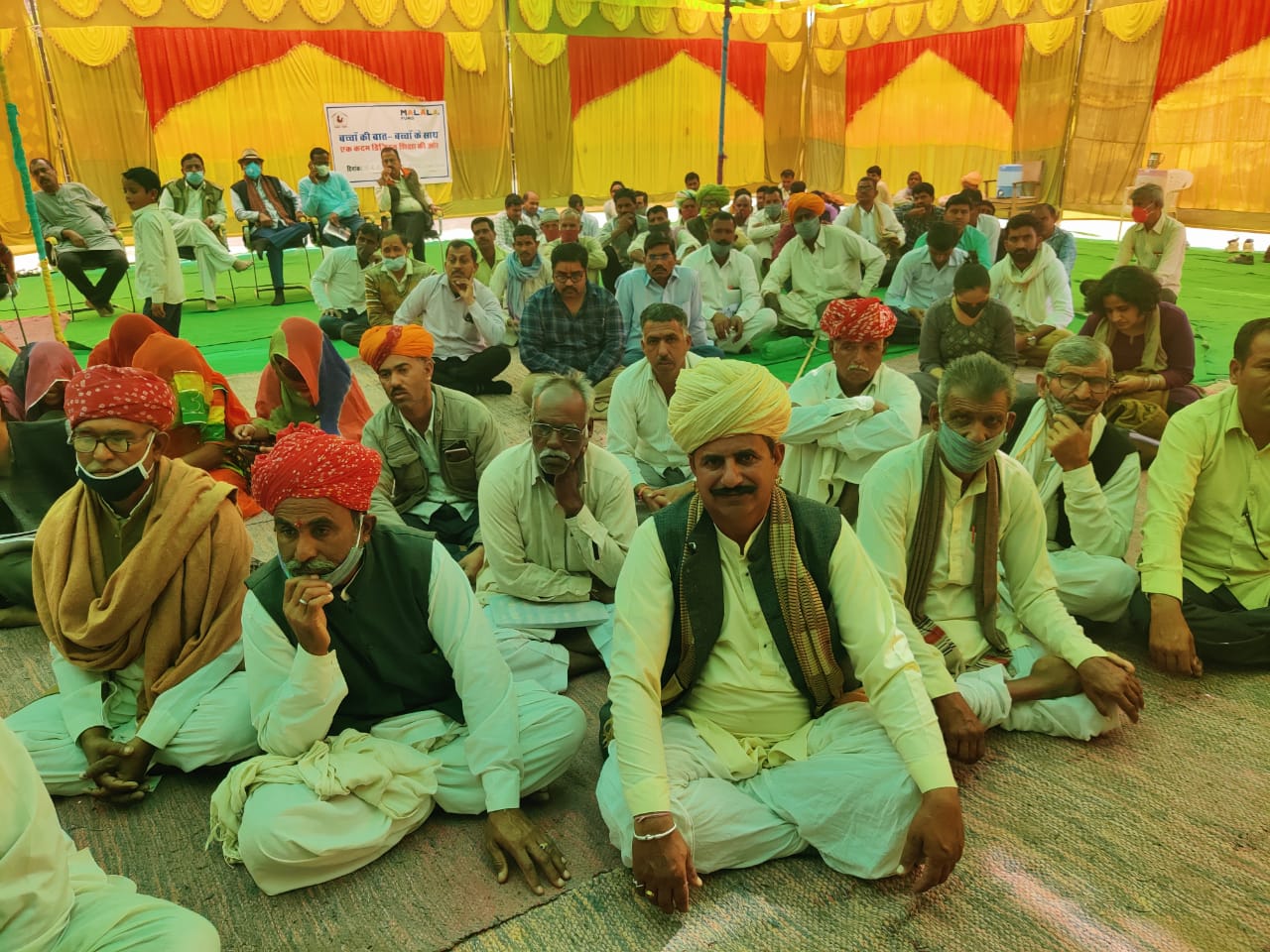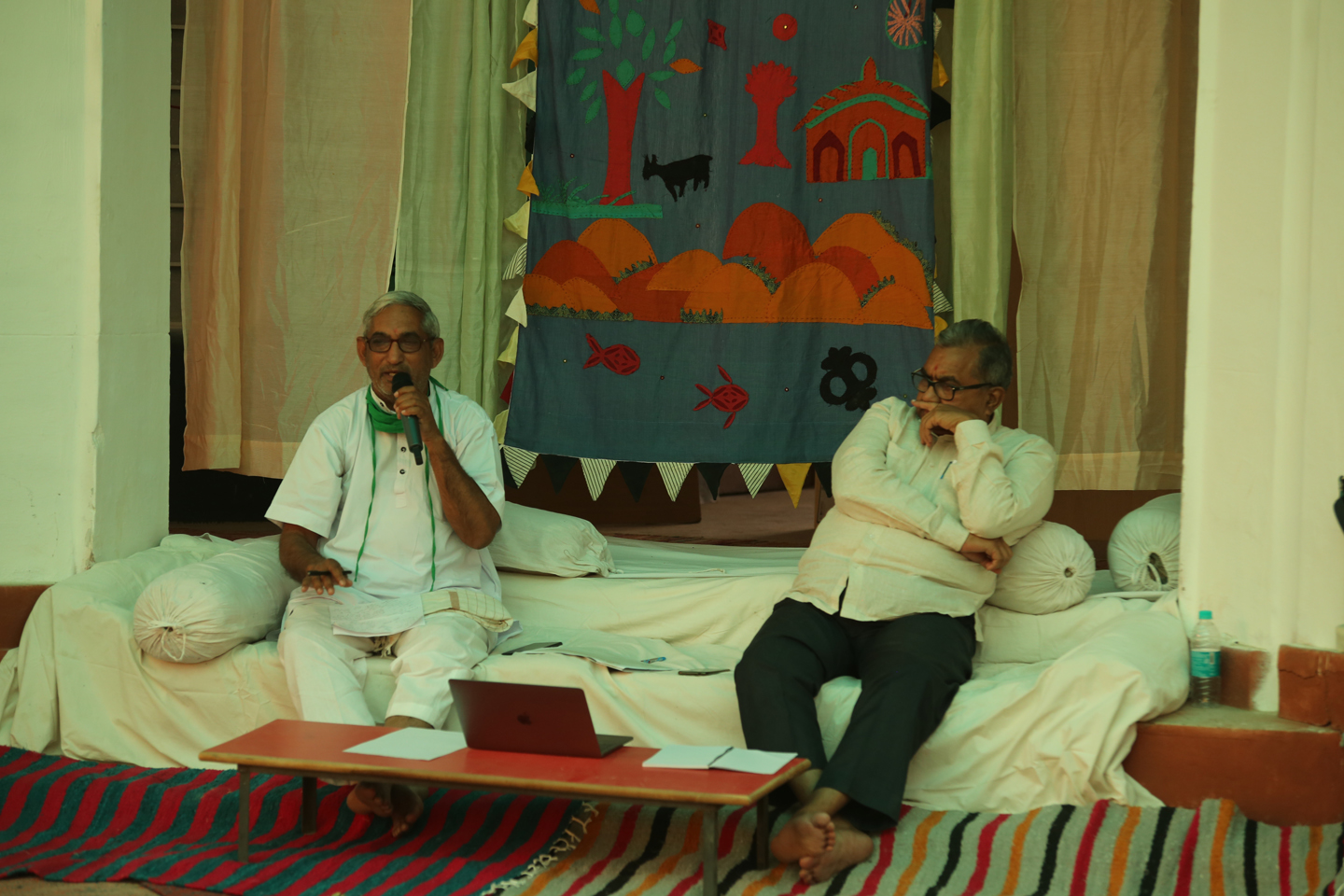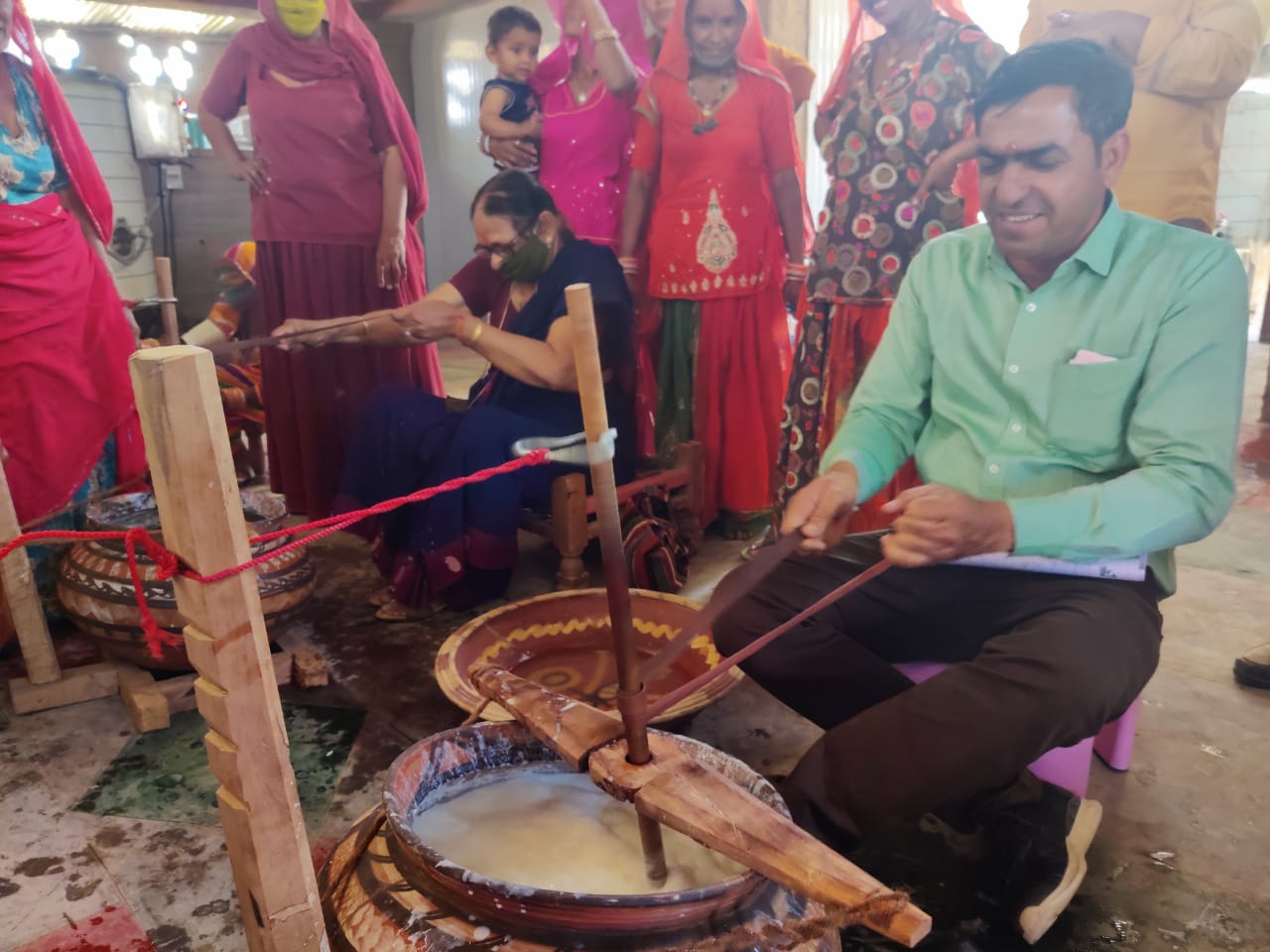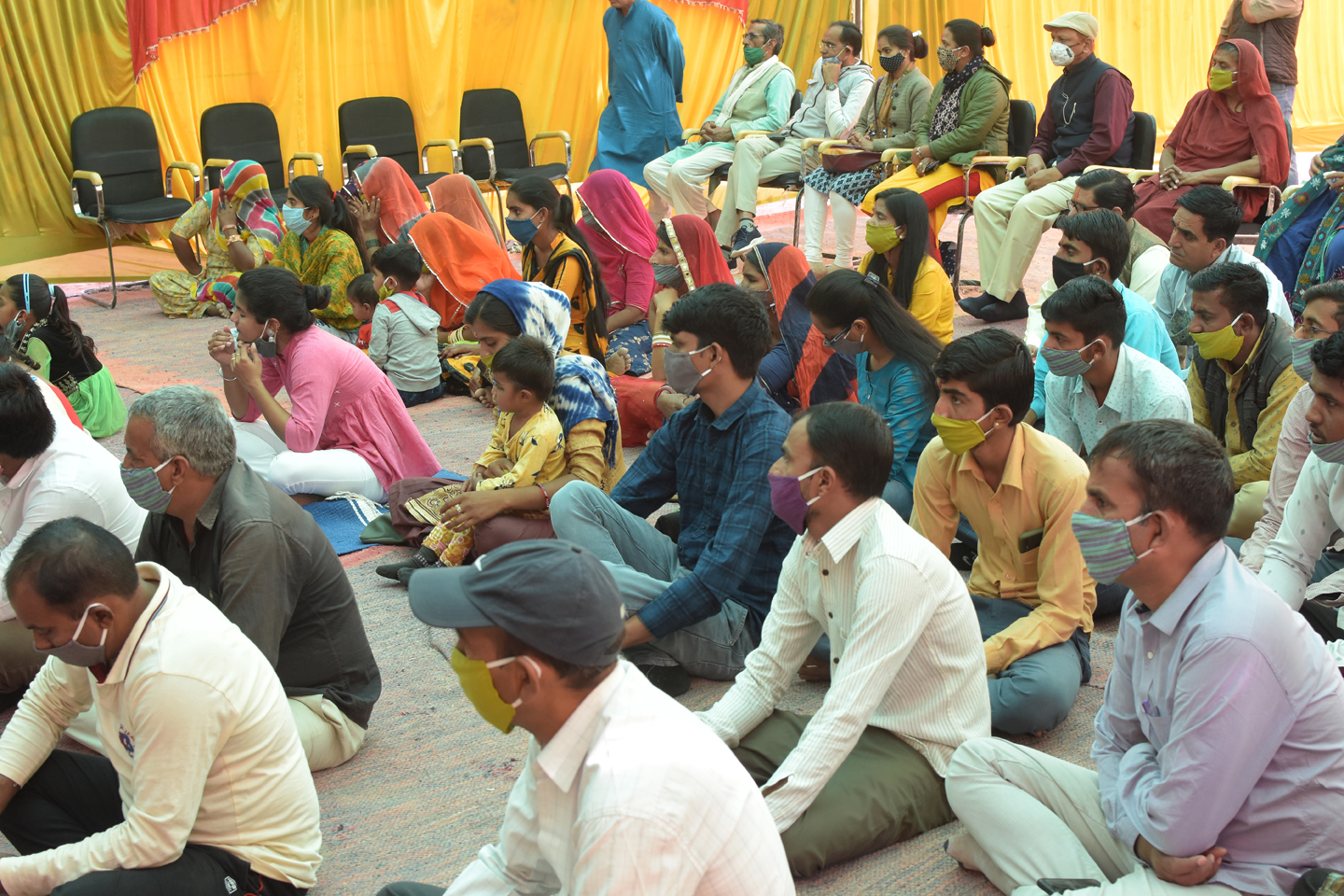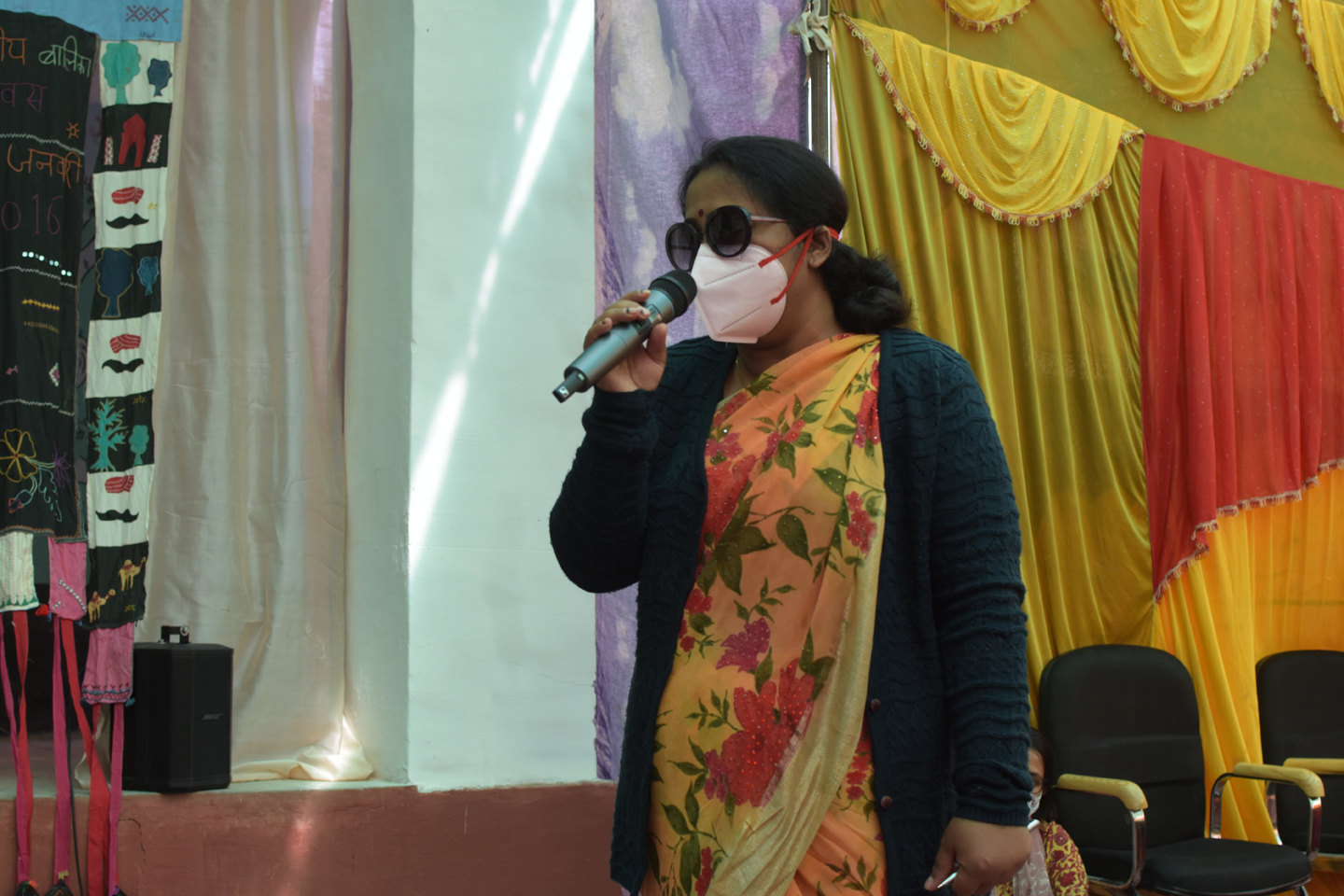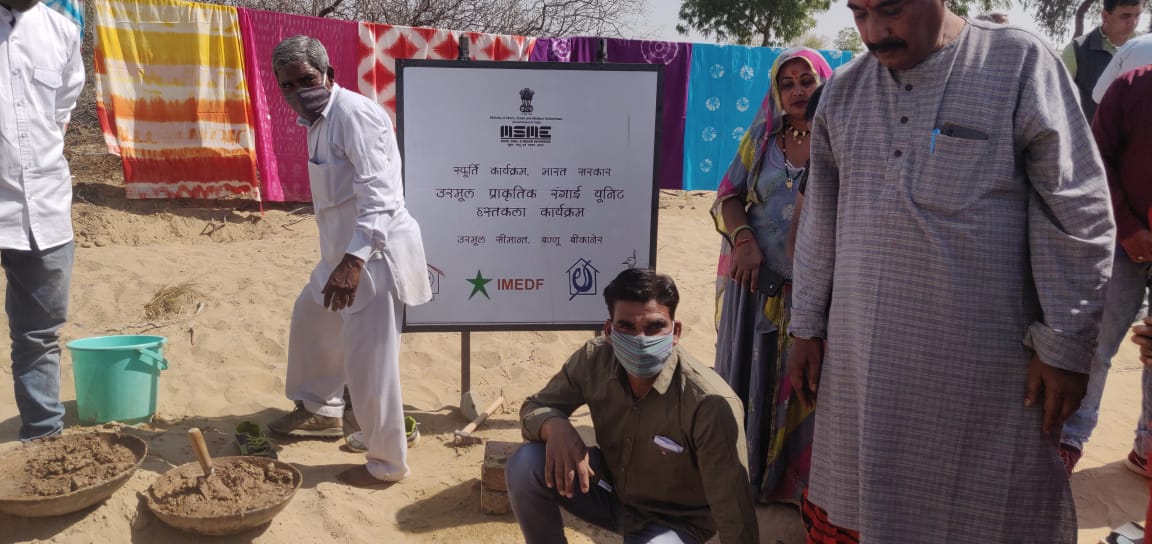
Deserts are unique in its fabric and in its being. The people-rhythm dance the elements and life here. Amidst scarcities and challenges lies the great stories of resilience, jubilations and innovations.
Maru Manthan is a vision to celebrate this uniqueness and emerging dynamics of the dunes. Visualized as an annual forum to reflect and advance on the domains and aspects of desert land, life & living. Maru Manthan believes in alternatives, innovations and dialogues.
We’ll host shared experiences of policy makers, civil society representatives, academicians, media professionals, students and community members from the remote and distant hamlets of western Rajasthan.
We look forward to co-creating this forum to celebrate and acknowledge the desert community’s resilience, achievements and values. We aim at hosting stakeholders from various strata and build a unique platform to advance discourse in the socio- cultural, public policy and changemaking spaces.
Thank you for participating in Maru Manthan
The entire Urmul group, sincerely express our gratitude to you for your participation in Maru Manthan 2021. The plethora of ideas, dialogues and thoughts on arid regions and recommendations for our future interventions have greatly helped us. We shall be incorporating those in our programme designs towards advancing the alternatives and innovations for improving desert land, life and living.
The two-day forum organised at the Indo-Pak border village of Bajju in Rajasthan, hosted several panels covering a wide range of desert issues. We inaugurated the first of its kind camel milk dairy, and laid the foundation stone for Urmul natural dyeing unit. During the two days, we fondly remembered and reflected on Shri Arvind Ojha’s life and work.
Manthan
Finding ‘A’ Desert Identity
Every aspect of life in the deserts, characterised by hostile and inhospitable landscape and extreme climatic conditions, is strongly delineated by its geography. A geography driven civilisation manifests an array of identities. These identities, over a period of time, evolve with the land, life and the living of the region. Deserts identities, earlier blessed with remote isolation from burgeoning urbanisation, are now being forced to either co-opt or suffer marginalisation. Post-global transformations have started showing its impact on the desert ecosystem, resulting in disruptions across cultural, societal and ecological scales. Existing divides are being further expanded by newer systems and institutions. The situation thus insinuates a challenge: what remains of the desert (way of living) and where? What defines deserts? What limits our deserts from a determinist point of view? What customs, practices and values are inherently native to the deserts? Can our varied perspectives and knowledge systems be integrated and linked to fix upon ‘a’ desert identity; a catchall collective one – one that is so expansive that it covers the entire diversity and yet maintains the distinct and uniqueness of the region?
Panellist
- Dr. Ashok Dalwai,Chief Executive Officer, National Rainfed Area Authority(NRAA),Government of India
- Meenakshi Batra, Chief Executive Officer, Charities Aid Foundation, India
- Tomio Shichiri, Foodand Agriculture Organisation, United Nations, Representative in India
- Dr. Rashmi Singh, IAS, Director at Women and Child Development, NewDelhi
- Om Thanvi, Founding Vice-Chancellor of Haridev Joshi University of Journalism and Mass Communication
Changemakers, Communities and Values in Development
As developmental practitioners and stakeholders, it is essential to come together and rethink our idea of what drives developmental change. Despite our efforts, access to services are often obstructed from reaching the remotest of villages. Have we yet figured out the specific factors that drive changes in the deserts? And how do these factors show up as systematic disparities during trying times? Our experience of the gone year has given us a lot to ponder over. What ethos would organisations imbibe in their line of work to tackle future phases of crises? What would drive communities and changemakers to further rights, development, human dignity, and democracy amidst such seemingly chaotic phases? What do we make of such phases? How should we prepare ourselves to keep up with rapid or abrupt change?
Panellist
- Ashish Kothari, Co-founder, Kalpavriksh
- Mathew Cherian, Chief Executive Officer, Helpage India
- Deep Chand Sankhla, Author, Publisher and Journalist
- R.K Anil, Chief Executive Officer, NDMC CSR Foundation
Moderator: Priya Jha, Country Director, Evidence Action
Resilient Desert Livelihoods: Lessons and Preparations for Disruptions
Desert communities are marginalised in many ways. Growth opportunities are stifled by low levels of literacy and minimal knowledge of distant markets. But with developmental efforts and pockets of interventions exerted by television and tourism, age-old traditional skills are gradually being recognised for commercialisation. Traditional livelihood sectors like handicrafts, pastoralism, agriculture are undergoing a plethora of changes to upgrade themselves to the changing times. Despite this, the absence of desert-oriented support services and income alternatives often disadvantage these desert livelihood sectors from withstanding and transitioning through market crashes, social unrest, ecological crises, etc. How can value chains and alternative livelihoods be redesigned to withstand dent-making incidences like the pandemic? How do we recalibrate existing platforms to meet the emerging needs of the desert economy? What measures do we devise to prepare and adapt value chains for unforeseen disruptions?
Panellist
- Dr. Sunil Kaul,Founder and Managing Trustee, The Ant
- Manoj Mishra, Executive Director, Sahjeevan
- Ramesh Saran, Secretary, Urmul Trust
- Dr. B Rath, Senior Technical Expert, National Ranifed Area Authority, Goverment of India
Moderator: Anubha Sood, Senior Program Officer (Alternative Livelihoods Counter Narcotics) at United Nations
Partnerships for Our Deserts
Desert ecosystem might be unique in itself and in its fabric and being but there are socio-economic and ecological similarities with other contexts that could very well be explored for more creative solutions to desert-centric issues. There is a need to adopt the unknown; push our conventional ways of working together. How do we re-imagine convergence and collaborations for deserts? How do we create innovative linkages between individuals, institutions and all players in between – for more focussed interventions in hot and cold deserts of the world? What aligned sectors can partner to best enable such interventions?
Panellist
- Anubhuti Patra, In-Country Representative, Malala Fund
- Sumita Ghosh, Board Member, Urmul Trust and Founder Director Rangsutra Crafts, India
- Shrashtant Patara, Chief Executive Officer, TARA and IMEDF
- Partab Shivani, Chief Executive Officer, Thar Education Alliance, Pakistan
Moderator: Prerna Agarwal, Chief Executive Officer, Urmul Desert Crafts
Highlights of the Manthan
Forum Info
Date
February 13-14, 2021
Location
Urmul Seemant Samiti Campus, Village Bajju, Bikaner
